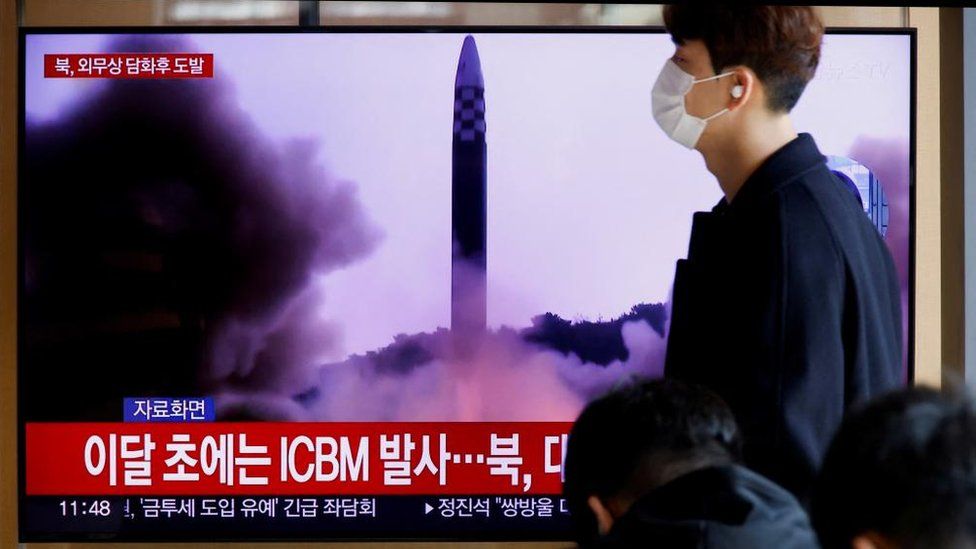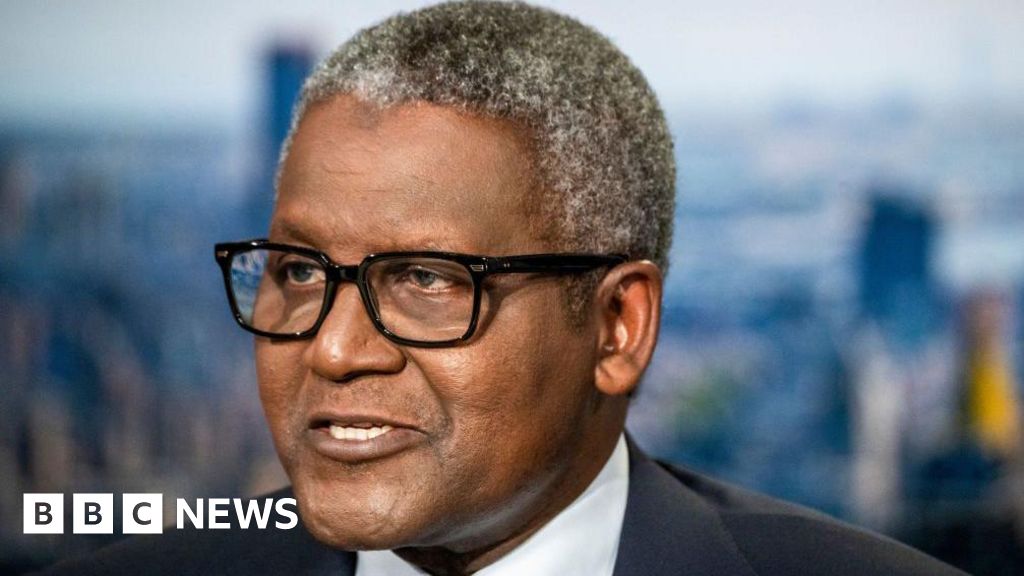ARTICLE AD BOX
 Image source, Reuters
Image source, Reuters
(file photo)
North Korea has fired a suspected intercontinental ballistic missile (ICBM), South Korea says.
The ICBM was fired from near the North Korean capital Pyongyang, military chiefs in Seoul said.
Japan said the missile landed in waters to the west of an island near its northern Hokkaido island.
On Thursday North Korea's Foreign Minister Choe Son Hui warned of a "fiercer" response to US plans to strengthen its regional presence.
It also launched a short range ballistic missile the same day.
It followed Sunday's meeting between US President Joe Biden, South Korean leader Yoon Suk-yeol and Japan's Prime Minister Fumio Kishida on the sidelines of a summit in Cambodia.
Mr Biden later said the three allies were "more aligned than ever" on North Korea's "provocative behaviour" and his national security adviser vowed a "unified response" if North Korea carried out a seventh nuclear weapon test, which US and South Korean intelligence services have been warning of for months.
The latest suspected ICBM was fired at 10:15 local time (02:15 GMT).
Mr Kishida said it was believed to have landed about 200km west of an island off the large northern Japanese island of Hokkaido, inside Japan's exclusive economic zone (EEZ).
He added there were no initial reports of damage to ships or aircraft.
"We naturally lodged a strong protest against North Korea, which has repeated its provocations with unprecedented frequency," Mr Kishida told reporters in Thailand.
"We have told (Pyongyang) that we absolutely cannot tolerate such actions."
North Korea has tested a record number of missiles this year as tensions have risen. Friday's launch is the eighth suspected ICBM test by Pyongyang this year.
Earlier this month the North launched an ICBM but it failed mid-flight, according to the South Korean military. After that launch the US and South Korea agreed to extend their joint air drills beyond their scheduled end date.
In October, North Korea launched a ballistic missile over Japan - the first time it had done so in five years.
Despite crippling sanctions, Pyongyang conducted six nuclear tests between 2006 and 2017 and is believed to be planning a seventh.
It has continued to advance its military capability - in breach of United Nations Security Council resolutions - to threaten its neighbours and potentially even bring the US mainland within striking range.

 2 years ago
18
2 years ago
18








 English (US)
English (US)